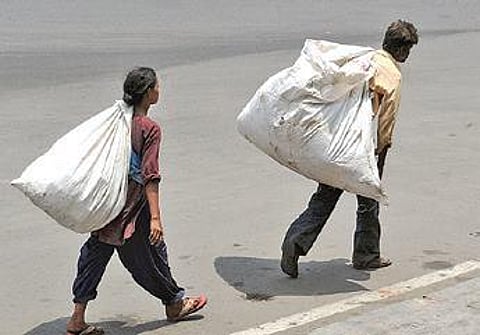

BENGALURU: Samuhika Shakti, a programme to address the plight and improve working condition of dry waste collectors in Bengaluru, was launched on Wednesday. The initiative, funded by Sweden-based H&M Foundation, has the support of Bruhat of Bengaluru Mahanagara Palike. BBC Media Action, CARE, Hasiru Dala, LabourNet, Save the Children, Social Alpha, WaterAid and The/Nudge Foundation have also joined the programme.
“The vision is to enable them to have greater agency to lead secure and dignified lives,” said Maria Bystedt, Strategy Lead, H&M Foundation. BBMP Commissioner N Manjunatha Prasad said work is on to identify the waste collectors, give them identity cards and bring them under SWM rules. There should be no unorgansied dry waste collectors and the BBMP is working towards it.
So far, 8,000 rag-pickers have been identified and given ID cards. The city, which has 198 wards, has 168 dry waste collection centres and work is on to set up more such centres, he added. During a webinar on Wednesday, BBMP officials and experts accepted that the rag-pickers know the waste best and help the government save crores of rupees. Though the waster collectors are the lowest in financial hierarchy, they play a crucial role in saving this cost, they said.
BBMP Special Commissioner, SWM, D Randeep admitted that there are gaps in the system and linkages which are being filled. In the next 3-4 months, robust waste collection will be done where waste pickers and self-help groups will be aggressively involved. The Netherlands had come forward to set up 10 dry waste centres and the plan is now to extend it to other places.
During the first three years, Samuhika Shakti will attain six key outcomes for waste pickers and their families — higher and more stable income, improved and safer working conditions, access to affordable and quality services from public and private sector, support systems for victims of violence and substance abuse, and more respect and recognition for their work.